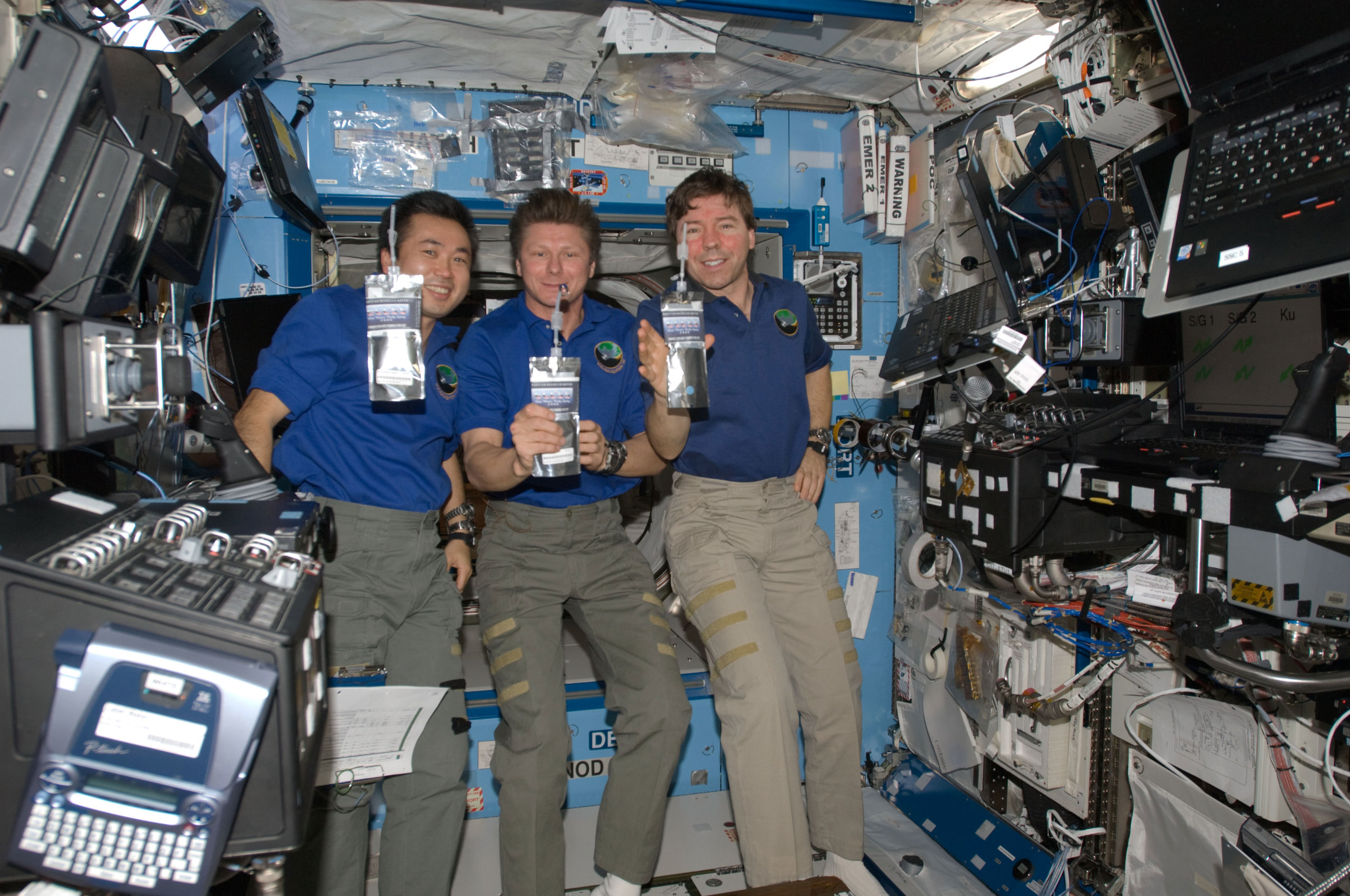NASA is investigating two potential applications of synthetic biology—one to advance nutrition and one to increase in-space manufacturing capabilities.
Astronauts aboard the International Space Station receive regular resupply shipments from Earth, providing them with nutritious food during their expeditions. Future astronauts on the journey to Mars will be much farther away, outside the reach of current cargo resupply capabilities. Even with the most advanced preservation and packaging technologies, food can lose its nutritional value during long-duration missions. Much like the discovery that citrus fruits cured the scurvy ailments of seafarers and other explorers in the 18th century, science is hard at work again to address the nutrient concerns of deep space explorers.
Synthetic biology developments under way will provide on-demand nutrients through hydratable, single-use packets that contain microbes engineered to produce target nutrients for human consumption. The packets will be hydrated to allow the microbes to grow for a short period before they are deactivated, at which point the nutrient content can be consumed.
The first demonstrations of synthetic biology nutrients will employ yeast engineered to produce Zeaxanthin when activated. Zeaxanthin is a carotenoid, which is an important antioxidant for ocular health, a known risk for astronauts who spend extended periods of time in space.
BioManufacturing for In-space Construction
On Earth, we use the products of refineries every day. One example is crude oil that is used to produce hundreds of every-day commodities such as gasoline, plastics, fabrics, cosmetics, and construction materials. Crude oil is harvested from Earth after organic compounds have been transformed for millions of years far below our planet’s surface.
Using rapid physical and chemical methods, we can expedite nature’s refinery process to convert carbon dioxide to organic materials. These organic materials are then used by genetically engineered microbes to produce plastics, fibers, and other types of feedstock for in-space manufacturing. Starting with a few raw materials found in the atmosphere and on the surface of Mars, and using advanced manufacturing techniques such as 3-D printing, microbial workers could enable the construction of habitats, tools, and spare parts on-demand.
SynBio Project
The Space Synthetic Biology (SynBio) project, located at NASA’s Ames Research Center in California’s Silicon Valley, is developing technologies to biomanufacture valuable products on-demand such as vitamins and medicines. In addition, biomanufacturing processes will allow crews to produce valuable materials, such as a healthy fats, proteins and even a form of cement, from local resources.
The BioNutrients experiment is part of NASA’s SynBio project and will test an in-space nutrient production method that uses genetically-engineered baker’s yeast and an extended shelf-life growth substrate to produce specific antioxidants, such as beta carotene and zeaxanthin, typically found in carrots, bell peppers and other vegetables. In April 2019, the SynBio team launched their first batch of “BioNutrient” packs to the International Space Station for a five-year experiment. The BioNutrient packs are filled with dehydrated yeast and their food source. To initiate the tests, astronauts aboard the space station add sterile water to the pack, mix well and keep the packet warm for 48 hours. Then, they freeze it to be analyzed later, back on Earth. NASA scientists will check how the system performed, including how much yeast grew in the packets and how much nutrient the experiment produced.
The SynBio project team is also developing a technology that chemically converts carbon dioxide (CO2) and water to organic compounds that can “feed” microbial biomanufacturing systems to make a wide range of products such as food, medicines and plastics. This same method could be widely applied to sustainably create these products on Earth.

